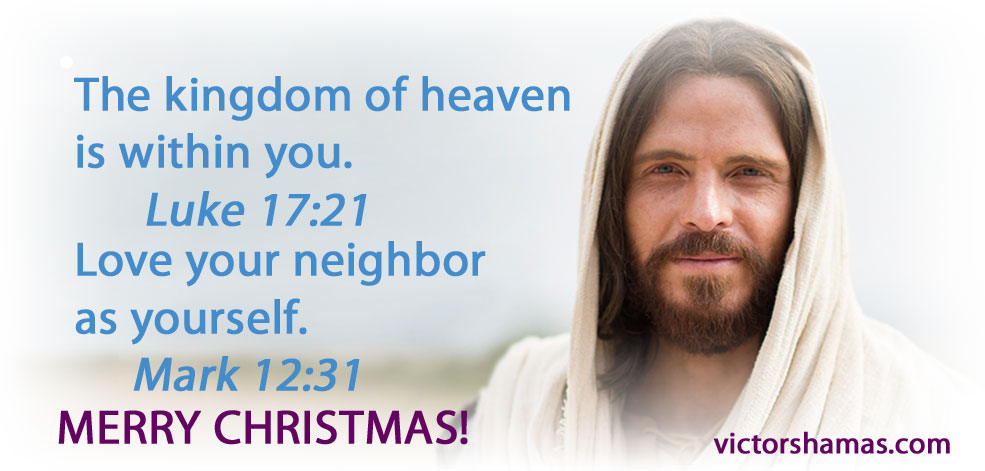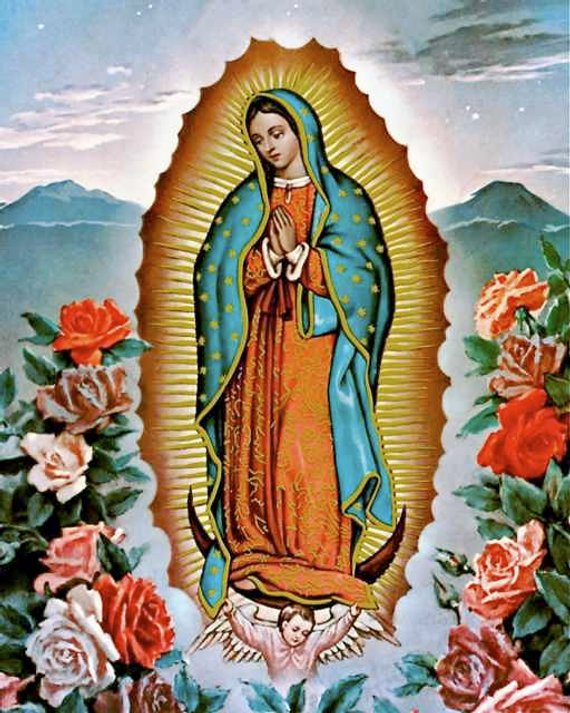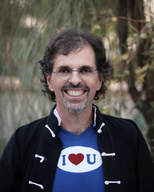|
Two millennia after his death, Jesus continues to have a profound impact on the world. Over two billion people in more than 160 countries will be celebrating Christmas this year.
What makes Jesus such a compelling figure? For me, it is neither the circumstances of his birth or of his death. Rather, the greatness of Jesus lies in his simple, direct message about the nature of humanity. "The kingdom of heaven is within you." This is one of the greatest teachings in human history. Here, Jesus is affirming that the Divine is an indwelling presence in all of us. Whether we know it or not, the kingdom of heaven lives in our hearts in the present moment. Here and Now, Baby! And this is not just true for ourselves. That which is infinite and eternal abides in everyone. That is why Jesus urges us to love each other as ourselves. What is sacred in us is also sacred in our friends, family, neighbors, colleagues, pets, and even our adversaries. The only thing that can make anyone our enemy is ignorance. Once we are able to embrace the basic truth that Jesus offered the world, we come to see the fundamental bond that underlies our apparent differences. We can honor Jesus properly during this holiday season by giving the only gift that really matters: pure, unconditional love. Merry Christmas and Happy Holidays!
0 Comments
Since earliest childhood, I have been drawn to experiences in which I lose myself. This is not poetic license; I mean it literally. For extended periods of time, I disappear. I am not aware of any thought—not even a thought of myself. My sense of time vanishes. Nothing is lacking. I have no concern about hunger, thirst, hot or cold. All I know is the pure feeling and sensation of the present moment. The experience is luscious and joyful. There is nothing traumatic or frightening about it. I learned early that when I lose myself, I gain everything. The entire universe opens up to me at these moments. Here is where I find my connection to spirituality, fulfillment, and creativity. 
So, how do you lose yourself in this kind of experience? It all starts with emptying the mind. You can do this through concentrative meditation techniques, which have you focus your attention on one thing. This could be a visual stimulus (mandala), sound (mantra), physical pose (asana), or gesture (mudra). If you focus on one thing long enough, your mind goes blank. For me, chanting is an especially powerful tool for this.
In Deep Creativity, I draw the analogy between concentrative techniques and an obscure visual phenomenon called retinal image stabilization. The natural tendency of the eye is to jump from one image to the next in a series of movements called saccades. In the 1960s, researchers discovered that if you stabilize a retinal image, meaning that you hold it perfectly still relative to the eye, it eventually disappears from view.
Similarly, most of the time your mind jumps from thought to thought, like a monkey swinging from one branch to the next. If you hold a single thought in mind long enough, the mind shuts off. You are disrupting your stream of thought just long enough to find that delicious silence which lies in the space between thoughts. And where there is no thought, there is no YOU. That is because your self-concept is just a thought, made up of other thoughts. So, when you silence your mind, you lose yourself.
Most people who learn concentrative meditation techniques struggle to master them. A far easier way to go is to immerse yourself in play. Of course, it has to be the right kind of play. In The Way of Play, I recommend play activities that are simple and non-competitive, requiring no strategy and little effort. You will find a list of 108 such activities inThe Way of Play, including walking in nature and soaking in a warm bath.
So, here is how you can lose yourself in the moment:
As a kid, you probably knew how to savor the moment while immersing yourself fully in play. But as an adult, you may have forgotten what that feels like. You might be preoccupied with all kinds of worries and concerns. Your responsibilities and to-do list may seem so urgent that they demand your constant attention. But in truth, these things are not as important as they seem. And taking a break from them—even for only a few minutes—will let you come back to them with a fresh perspective and renewed energy. You don’t have to learn how to lose yourself. It’s more a matter of remembering--and making it a priority in your daily routine. When you lose yourself in play, you gain everything. My whole life, I have followed the trail of inspiration wherever it would take me. This quest has led me to sacred chanting, divine play, Repose, and Deep Creativity, all of which have inspired me endlessly. Today, I pay tribute to a most astonishing and delightful source of inspiration in my life. This past year, I fell deeply, passionately in love. I must confess that I never saw it coming, which makes it all the more wonderful. Now, December 12 has become one of the holiest days on my calendar. Not only is this the Day of the Virgen de Guadalupe; it is also the birthday of my beloved Maria--the woman of my dreams and the joy of life. Through Maria, I have learned so much about the sacred power of shared love. In the weeks and months ahead, I look forward to sharing some of these lessons with you. I have come to the conclusion that if you are fortunate enough to have a great love in your life, you have everything you need to experience inspiration on a daily basis. And if you cultivate that love, it will only grow more inspiring with each passing day. In honor of this auspicious occasion, I offer the following prayer: My love for you is holy. Let there be no doubt. I am the humble peasant climbing the Hill of Tepeyac, and you are an apparition far more resplendent than anything I could have imagined. From the very beginning of my life, I have been searching for you. In your joy, I am born and reborn again. And in your love, I am annihilated gladly. I dissolve in your embrace until there is nothing left but you. I am the devoted pilgrim finding redemption at your altar. Since the moment my heart started beating, it has burned with passion for you. My adoration for you is complete, Beloved, and it can never be extinguished. In the barren desert, I gathered roses and placed them carefully in my cloak. Today, before the eyes of witnesses, all these flowers fall away, leaving only an imprint of you on the fabric of my being. Your beauty would be no less miraculous if mine were the only eyes that could see it. But many a dream has been illuminated by your radiance. I honor and celebrate the inception of you. In your effervescent smile, I have found my calling. After eons of wandering through this dream world, at last I am lucid. In answer to your question, I say: “Yes, you are here, Beloved. And I am here in you. I live to fill you with delight.” Ave Maria!
What would happen if we faced our "inner self"? Who would we find? What would that self be like?
In his classic essays, Montaigne claims that we fail to discover the inner self out of fear. But maybe we just don't know what to look for or where to find it. Searching for the inner self might be the ultimate adventure. We are stalking something mysterious and intangible that lives within us. When we find it, we may discover the deepest and most substantive answer to the age-old question: Who am I? The inner self lies at the core of our identity. But what exactly does that mean? We could say that the inner self is what remains when everything else get stripped away. For example, we are not the titles and degrees we have earned, nor can we be defined by our possessions. Why? Because we would continue to exist without them. Same goes for the roles we assume in our lives, as spouse, parent, friend, student, lover, boss, teacher, rival, coworker, or assistant. We may switch roles many times over the course of our lives, and yet something of us stays the same. The circumstances of our birth seem to stay with us for our entire lives. These include our birthplace, family of origin, culture, race, ethnicity, sex, and religion. Yet each of us varies in the extent to which we accept and embrace those circumstances. For example, we may choose a spiritual path that differs from the religion in which we were raised, or we may immigrate to a new homeland. Some would argue that there is no such thing as an inner self. Social psychologists maintain that who we are is more a function of the situations in which we find ourselves than some lasting, stable disposition or set of traits. Buddhists tend to embrace the doctrine of anatta ("non-self), which states that there is no such thing as an unchanging, permanent self, soul, or essence. If this is true, then the search for an inner self seems pointless. And yet, Buddhists also believe in reincarnation, implying that something within us continues beyond this life and transcends our death. One Buddhist master stated, "I am not this body, so I was never born and will never die. I am nothing and I am everything. Your identity makes all your problems. Discover what is beyond them, the delight of the timeless, the deathless.” The one thread that runs through our lives is: I AM. This is the experience of being, of consciousness, of pure essence. The form we take is constantly changing. One day, we say, "I AM X," and the next day, "I AM Y." But regardless of what we identify with or how we define ourselves, there is always I AM. When you contemplate this simple statement, "I AM," you will find your inner self. And when you do, you will discover that it has nothing to do with what you think, how you act, or who you know. Your inner self runs much deeper than that. It's time to uncover this greatest of mysteries. |
I want to hear from you! Please share your questions and comments. And sign up for my newsletter, where I will pass along the insights, ideas, and inspiration that come my way.
Contact me:Archives
November 2023
|








 RSS Feed
RSS Feed
